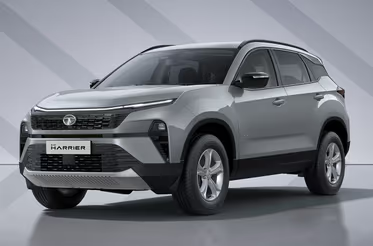1. Hyundai Motors (the car manufacturing company)?2. A specific dealership or website related to Hyundai (maybe in relation to your previous button code)?3. Do you want information, images, or code related to Hyundai Motors
Hyundai vs Tata Motors: A Detailed 1000-Word Comparison of Cars, Prices, and Value
Introduction
India’s automobile market is one of the fastest-growing in the world, with millions of consumers upgrading from two-wheelers to personal cars. Among the leading manufacturers competing for attention are Hyundai and Tata Motors. Hyundai, a South Korean company, is known for its stylish designs, smooth performance, and feature-rich vehicles. Tata Motors, a homegrown Indian brand, has built a strong reputation for safety, robust build quality, and value for money.
In this article, we’ll compare both companies based on their car lineup, pricing, features, safety, and overall value, to help you decide which brand suits your needs best.
1. Brand Overview
Hyundai has been present in India since 1996 and quickly became the second-largest carmaker after Maruti Suzuki. The brand is known for its modern styling, rich feature sets, and refined engines. Hyundai cars are often positioned as premium options in every segment they operate in.
Tata Motors is India’s own automobile giant, with roots dating back to the 1940s. Over the past few years, Tata has undergone a major transformation, focusing on design, safety, and electric vehicles. It now appeals to a wide range of buyers who want value-packed, strong, and safe vehicles.
Entry-Level Hatchbacks
Hyundai Grand i10 Nios
Price: ₹5.92 – ₹8.56 lakh (ex-showroom)
A stylish, feature-rich hatchback with excellent fuel efficiency and refined engines. Offers AMT and turbo variants.
Tata Tiago
Price: ₹5.65 – ₹8.90 lakh (ex-showroom)
Known for its solid build, good ride quality, and impressive safety rating. Comes with petrol and electric options.
Verdict: The Tiago is better for those who want a strong, safe car at an affordable price. The Grand i10 Nios is ideal for customers looking for refinement and comfort.
Compact SUVs
Hyundai Venue
Price: ₹7.94 – ₹13.48 lakh
Offers a premium cabin, multiple powertrain choices including turbo-petrol, and advanced features like connected car tech.
Tata Nexon
Price: ₹8 – ₹15.80 lakh
A best-seller in the segment, the Nexon is admired for its 5-star safety rating, bold design, and now even better with the 2023 facelift.
Verdict: The Nexon wins on safety and design, while the Venue offers more premium features and smoother petrol engines.
Mid-Size SUVs
Hyundai Creta
Price: ₹11 – ₹20.15 lakh
The most popular SUV in the segment. Offers multiple engines, including diesel, and a premium interior with a panoramic sunroof and ADAS in higher variants.
Tata Harrier
Price: ₹15.49 – ₹26.44 lakh
A larger SUV than Creta with a powerful diesel engine and bold styling. Very strong road presence and great ride quality.
Verdict: For a slightly higher price, Harrier offers more space and a stronger diesel engine. Creta, however, provides more convenience features and smoother city driving.
Electric Cars
Hyundai Kona Electric / Ioniq 5
Kona Price: ₹23.84 – ₹24.03 lakh
Ioniq 5 Price: ₹46.05 lakh
Hyundai’s EVs are premium products, ideal for urban luxury buyers. The Ioniq 5 is futuristic and loaded with features.
Tata Nexon EV / Tiago EV / Tigor EV
Tiago EV Price: ₹7.99 – ₹11.89 lakh
Tigor EV Price: ₹12.49 – ₹13.75 lakh
Nexon EV Price: ₹14.49 – ₹19.49 lakh
Tata dominates the Indian EV market with affordable and practical electric options.
Verdict: Tata leads the EV race with affordable electric cars for the masses. Hyundai offers more premium EVs for niche buyers.
3. Features and Technology
Hyundai is often ahead when it comes to tech features. Most of its cars offer touchscreens, wireless charging, connected car tech, sunroofs, and even ventilated seats. Higher variants of Creta and Verna now offer ADAS (Advanced Driver Assistance Systems), a rare feature in this price range.
Tata is closing the gap fast. Newer models of Nexon, Punch, and Harrier come with digital instrument clusters, wireless Android Auto/Apple CarPlay, premium sound systems by JBL, and large touchscreens. Tata’s focus is now on software improvements and UI smoothness, which still need some polishing compared to Hyundai.
4. Safety and Build Quality
Tata Motors has made safety a core priority. Most of its vehicles like the Nexon, Punch, and Altroz have received 4 or 5-star ratings in Global NCAP crash tests. The use of high-strength steel and standard safety features such as dual airbags, ABS, and ESP in most models make Tata a clear leader in this category.
Hyundai also equips its cars with good safety features, but build quality is sometimes questioned by critics. While Creta and Verna offer six airbags and ADAS, entry-level Hyundai cars haven’t scored high on NCAP tests historically. Tata's cars, in contrast, often earn praise for their solid body shells.
5. Driving Experience
Hyundai vehicles are easy to drive, especially in the city. Their petrol engines are very refined, and gearboxes (both manual and automatic) are smooth. Turbo variants like the Venue and i20 add fun to the driving experience.
Tata offers heavier steering and a more planted ride, ideal for highway stability. Its diesel engines are torquey and offer great driveability. However, Tata’s petrol engines may not feel as refined as Hyundai’s, especially in terms of noise and smoothness.
6. Service and Reliability
Hyundai has a well-established service network across India and is known for reliable products and consistent after-sales service. Maintenance costs are slightly higher but predictable.
Tata Motors has improved its service experience significantly in recent years, though it still has room for improvement in some smaller towns. That said, parts availability and service quality are now on par in most metro cities.
Conclusion
Choosing between Hyundai and Tata depends on your priorities:
If you value refinement, smooth engines, premium interiors, and advanced tech, Hyundai offers a more luxurious experience across its lineup.
If your focus is on safety, strong build quality, value for money, and supporting a Made in India brand, Tata Motors is the clear winner.
In terms of EVs, Tata Motors is the best option for budget electric cars, while Hyundai caters to the high-end EV market.
Both brands offer excellent choices, and the growing competition between them is a win-win for Indian consumers. Whether you pick Hyundai’s finesse or Tata’s rugged reliability, you’re likely to drive home a solid car that suits your lifestyle.


